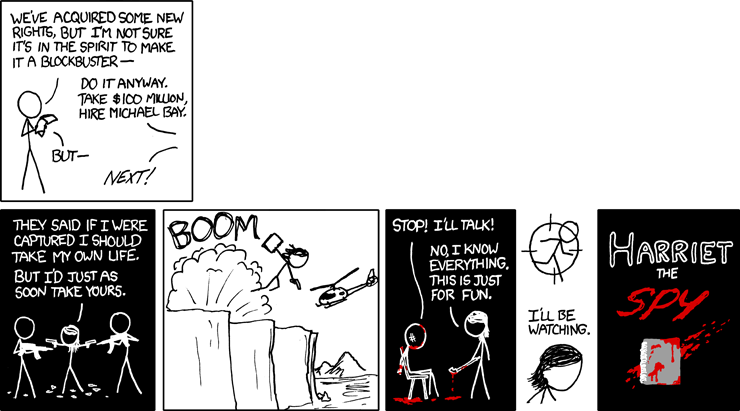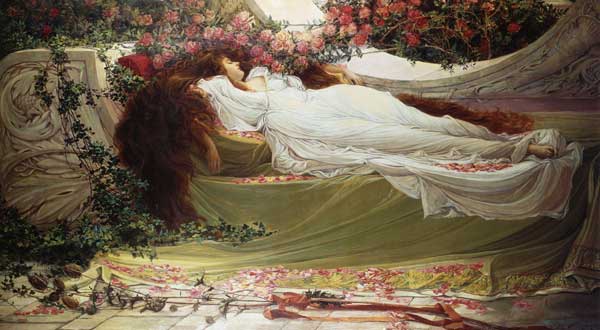How long has it been since I wrote a blog post likening dancing and life? Too long, I think. So I think I'll just fix that right now.
So I have this friend Spencer who is known throughout our local dance community for his rather...flamboyant dance style. Words like "infamous" or "melodramatic" might be used to describe it. And certainly Spencer's dancing does have more drama than anyone else in our scene--involving a lot more sweeping hands and passionate embraces than you'll see anywhere else. And much as we love Spencer, I don't think that there is anyone that hasn't made at least one good-humored joke about, or attempted over-dramatic parody of, his style, myself included.
But say you're a person like me who gets the occasional song obsession. You know, where you hear a song and it feels like it had to have been written specifically for you at just this moment in your life. You listen to it over and over and when you even
try to listen to something else it just feels wrong. Well, maybe you don't know that feeling. But it's a common enough experience in my life. And I just happen to be in the midst of another iteration of it right now. With this song:
In the midst of my obsession comes ULX, and I get to play my current favorite song during one of the dances. Dancing a favorite song is serious business because you want someone who will do your song justice. Who do I want to dance with?
The answer is Spencer.
Why would I want to dance with the drama queen of our scene? Isn't he just going to turn my song into a big joke?
The thing about watching Spencer dance is that that is exactly what you're doing--you're watching him. You're not dancing with him. And from that outside perspective it is hard to take him seriously when every dance looks like the same. There's the hands.......there's cheek to cheek connection......there's sharp turns......yep, it's all there... It's one thing if you see someone who dances "normally" most of the time dancing like that. Clearly they're having some serious connection and something intense is happening. But when every dance is like that? Well they can't
all be serious and intense right? No one has serious intense passionate dances
every time they dance. So he must just be putting it on...
Now I can't know for sure because I'm not in Spencer's brain. But if ever there was a person who really was having (or at least trying to have) the intense passionate dance
every time he dances, it is Spencer. Or, to put it another way, he is willing to commit himself 100% to any given dance and to
feel it with no fear of looking stupid or...melodramatic. He is earnestly passionate in his dancing.
And
that is why I wanted to dance Favorite Song with him. Because when I dance with Spencer
I get to be earnestly passionate, too. When you know your partner will match you moment for moment, no matter where you go, it is one of the most liberating things you can experience dancing. It gives you a level of safety and confidence in your dancing that elevates your movement beyond your actual ability. It makes it possible to have exactly the dance you wanted to have to your favorite song (and anyone who has ever experienced "expectation vs. reality" disappointment will, if they take a moment to think about it, understand how significant that actually is).
Now, I want you to reread that last paragraph, but replace all the dancing words with relationship words:
And that is why I wanted to date him. Because when I'm with him I get to be earnestly passionate, too. When you know your partner will match you moment for moment, no matter where you go, it is one of the most liberating things you can experience in a relationship. It gives you a level of safety and confidence in the relationship that elevates your emotional vulnerability beyond your actual ability. It makes it possible to have exactly the relationship you wanted to have with your significant other.
It works pretty well, doesn't it. Try it with anything at all that involves any sort of relationship with two people and I suspect it will still work equally well. Because the core of why I love dancing with Spencer
doesn't actually have anything to do with his specific dancing. It's about who Spencer is as a person, which is a person who is earnest without fear of judgement.
Earnest.
When you hear that word you probably think of the delightful Oscar Wilde play "The Importance of Being Earnest". You should. It's a great play (the movie with Colin Firth and Rupert Everett is also great). But that play is actually a satire about the
lack of earnestness (earnesty?) conveyed by people of the time.
Because western society has actually been suffering a drought of earnesty (I'm gonna go ahead and use it cause the OED says it's a word...albeit one that hasn't been used since the 1500's) that has gradually been intensifying since around the turn of the last century. In the wake of the first and then the second Great War society was faced with a crisis of philosophy, culture, and identity. Faith came under fire as people wondered how any god they had ever heard of could have let these atrocities happen. Institutions and authority that had previously been inviolable were questioned. And the continuing progression of time and events has only reinforced the trend. Looking at all the "isms," from
Modernism to
Post-Modernism, including
absurdism,
existentialism, and
nihilism, you can see the decay of western society's moral convictions. That is not to say that morality was lost; rather the infrastructure of morality was lost. We didn't stop believing that there was a "right" and a "wrong" (well, sort of...) but we lost our conviction that we understood what they were or who made that decision. I've said before that World War II is a war that could never happen in today's Western World. We lack the conviction for it.
But as we lost our conviction and our ability to definitively know things we found a great big gaping hole in our collective world view. And as a society we've come up with plenty of things to fill that hole. You have the rise of the cult of rationalism--"I believe only in what can be rationally and verifiably proven". You have the obstinately faithful--"the more archaic you prove my beliefs to be the more desperately I will cling to them". But most of all I think society has filled the hole with apathy--"It was too hard to decide what was right and what to believe in so instead I simply stopped caring."
*Disclaimer: At this point my brain is seething with counter-arguments, exceptions, tangential points to make, and a million other things...but as this is a blog post, not an academic paper, I'm resolutely going to ignore them all. I just had to acknowledge that they're there*
Somehow caring about things has become unfashionable. I can think of no better way to describe this than, somewhat counter-intuitively, to invoke this infamous quote
Nerd culture has become strangely in vogue over the last couple of years as people have, much like the quote above declares, realized that it is a society in which it is still acceptable to care about things. But I can't help but notice a few things about that. First...why on earth do we have to be told that it is ok to care about things? Why do we have to proudly (or not proudly) label ourselves "Nerd" before it is ok to be enthusiastic? Second, even within the world of nerdly enthusiasm we have adopted a sort of reflexive, self-aware lexicon that allows us to distance ourselves from our enthusiasm. If you're feeling brave, take a brief trek through the wilds of tumblr, imgur, or reddit fandom communities. Nerds don't talk about feelings, they talk about their "feels".
You don't get excited, you "squee".
You don't care about a relationship between two characters, you "ship" them.
It's like nerds have to prove that they're aware that they care about these things more than they're necessarily supposed to. Or like their feelings for their nerd-topic of choice are separate from their
real, more reasonable emotions about real life. And lastly, is the compartmentalizing of enthusiasm to "nerdy" things just another attempt to strip passion, enthusiasm, and conviction from the rest of our lives? If nerds are the ones who are allowed to be "unironically enthusiastic about stuff", then what about the rest of the world--the ones who don't self-identify as "nerds". Are they not "allowed" to be passionate? Or must their enthusiams be cloaked in the ubiquitous coping mechanism of our post-modern world: irony. Things you can't like openly you can like "ironically". I can't decide if irony is the bane of modern society or its saving grace...

And now...are you ready for it? Now I'm going to bring us full circle. Back to my friend Spencer. Who dances passionately every single dance. I described him as being earnest. Because I think that earnestness is the opposite of apathy. It is certainly the opposite of irony. Spencer does not dance ironically, though when we watch him we suspect that he does. He is earnest. In his dancing, in his conversation, and in his interactions with life and people. And though I am a part of this nerdy, ironic, post-modern world of apathy and cynicism, when I dance with Spencer I get to let go of my protective shell of never being too invested in anything and be unabashedly passionate. Not passionate in a nerdy way, that makes fun of itself as it revels in its feels. Passionate in a completely authentic and up front way. A way that we can't help but make fun of when we see it because we can't imagine that such simple, upfront and un-nuanced emotion exists anymore in this world. That is earnestness. And even if I make the occasional joke at its expense, and I don't think I'll ever be able to claim that I am a perfectly earnest individual, I have to stand up for earnestness. Because when I dance earnestly with Spencer I am completely happy. And I think that has to count for something.



























